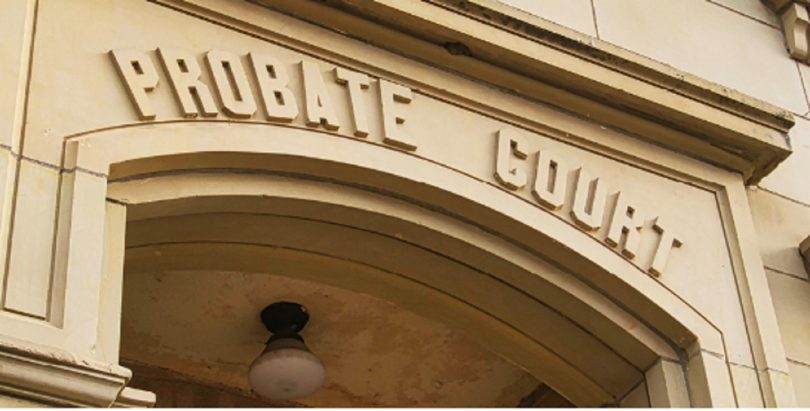Table of Contents
The probate court process can be lengthy and complex, thus requiring careful planning and preparation.
Throughout my 15-year experience as a professional heir researcher, I have handled different cases and helped hundreds of clients navigate the system successfully.
In this guide, I will break down the probate process, detailing all the legal requirements and the responsibilities bestowed upon the executor, heirs, and other interested parties.
Key Takeaways
- The probate court process ensures that the estate is distributed according to the will and the law.
- Common steps and stages in the process include filing a petition, valuing assets, and notifying creditors and tax authorities.
- The lengthy and complex process requires the assistance and guidance of genealogists and attorneys to protect your interests and rights.
What Is Probate and Why Is It Necessary?

Probate Court Process
Probate is the legal process of settling the decedent’s property and belongings (estate). The process involves verifying any will, appointing an estate administrator or executor, clearing debts, and distributing assets fairly.
The court oversees the process, ensuring all parties adhere to the law and the decedent’s preferences. In addition to appointing an administrator, the court provides solutions to any arising matters.
Therefore, the probate court process has three key parties, namely;
- The Executor or Administrator: Executors are named in a will by the decedent, while an administrator is appointed in a probate court if no one was named or no will was left behind (intestate).
- Beneficiaries: Any person entitled to inherit the estate either named in the will or established through state laws.
- The Creditors: Organizations or individuals who may have a claim against the estate to recover money owed by the decedent.
Having A Will Can Make the Probate Process Easier

A will can save time and resources in a probate process
Having a will is the most essential aspect of the probate court process. A will is a legal statement that expresses the decedent’s interest in their estate distribution.
A will lets you give instructions for your estate, including who to execute them, and include trustees or guardians for minor children. As a result, its distributed as you wish, not to mention the seamless process due to clarity and reduced disputes and conflicts.
However, dying without a will leaves the estate at the mercy of state laws of intestacy. Here, the decedent’s preferences may not be reflected, and the court decides who to manage the assets or inherit.
Dying intestate can also lead to protracted court battles, which result in delays, complications, and additional costs and fees.
What Is the Probate Court Procedure?

Probate cases
The court procedure starts when a person passes on, leaving behind an estate and potential heirs. Here is a detailed look into the stages, from filing a petition to distributing the assets.
Step 1: Gather the necessary documents and information about the decedent and their estate, including the will, death certificate, potential beneficiaries, and creditors.
Step 2: File a petition in a probate court where the decedent lived or owned property. In essence, the petition seeks the court’s guidance on the way forward and requests for an executor or administrator designation.
The petition must include;
- Name and address of the petitioner-usually the executor or a decedent’s relative.
- An updated will
- A list of known beneficiaries
- An estimate of the estate’s value after listing the assets and liabilities.
- Fees for filing and processing the petition.
Step 3: Informing all the interested parties, such as tax authorities, beneficiaries, and creditors, about the petition and the scheduled hearing date.
The probate court listens to any disputes or challenges during the hearing before determining the petition. After that, the executor or administrator gets the letters of testamentary to serve as legal authorization to act on behalf of the estate.
Step 4: The executor must search and document all the estate assets by searching safe deposit boxes, offshore accounts, homes, offices, and hidden assets. The search may involve contacting insurance companies, financial institutions, and other entities that manage or hold assets.
Note that valuing certain assets, such as business interests and real estate, requires a professional appraiser’s assistance.
Step 5: The executor should pay all the debts and taxes owed by the estate or the testator, including medical bills, inheritance taxes, loans, mortgages, and other obligations.
The administrator must verify the claims and pay or reject them according to their validity and order of preference. Similarly, they must obtain releases and receipts from each tax authority and creditor.
Step 6: After accounting for the entire estate and clearing debt, the executor can distribute assets to beneficiaries and heirs according to will or intestacy laws.
- The executor must provide all the receipts and disbursements to the court.
- They must also obtain a nod from each beneficiary on the appropriate fees and a commission for their work.
- The transfer of benefits shall adhere to the will or court determination.
What Is the Probate Court Process Timeline?
The probate timeline varies with jurisdiction and may also be affected by disputes and the complexity of the estate. Some states have expedited or simplified options, especially when dealing with small or uncontested inheritance
States like New York have two types of probate: administration proceedings and voluntary administration. The latter is a simplified probate process involving estates valued at less than $50,000.
The administration proceeding follows the steps in this guide and typically takes 7 to 15 months but can take longer if disputes and complications arise.
Factors That Can Affect the Duration of Probate

Assets and Estate distribution
The following factors can determine how quickly the process can get;
- Estate Value and Size: More valuable estates take longer to file and distribute than less valuable ones.
- Estate Type and Location: Bank accounts and cash are easier to deal with than business interests or real estate. Besides, offshore entities could require additional documentation and procedures.
- Beneficiaries: Many beneficiaries mean more potential disputes, consents, notices, and approvals. Similarly, uncooperative, missing, unknown, or incapacitated beneficiaries may lead to more work and delays in distribution.
- Presence of A Valid Will: An updated valid will make the probate process easier as the executor and beneficiaries are well-specified. However, an invalid or inadmissible will delays the process due to conflicts and uncertainties.
- The Executor or Administrator: A competent, trustworthy, and willing executor can expedite the process, but an inexperienced one can make the process harder and slower.
- The Probate Court Process: While the court process is critical in overseeing and approving estate management efficiency, workload and requirements may affect how long it takes to have assets distributed accordingly.The processing of claims from credits and tax authorities and working on lawyers’ fees and submissions might impact the estate value and make the process even more tedious.
You’re Almost There
This guide provides only a sneak peek of the probate court process. So, if you need personalized help handling your heirship, I recommend contacting Record Click.
We are a team of experienced and dedicated researchers and attorneys who can help trace an estate’s rightful heirs and locate any hidden treasures.
Above all, we generate legally binding genealogical reports, family trees, and other services crucial for probate and estate planning.
READ MORE about RecordClick’s heir research services, costs, and expectations.








